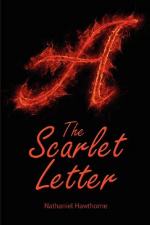Meanwhile, the press had taken up my affair, and kept me for a week or two careering through the public prints, in my decapitated state, like Irving’s Headless Horseman, ghastly and grim, and longing to be buried, as a political dead man ought. So much for my figurative self. The real human being all this time, with his head safely on his shoulders, had brought himself to the comfortable conclusion that everything was for the best; and making an investment in ink, paper, and steel pens, had opened his long-disused writing desk, and was again a literary man.
Now it was that the lucubrations of my ancient predecessor, Mr. Surveyor Pue, came into play. Rusty through long idleness, some little space was requisite before my intellectual machinery could be brought to work upon the tale with an effect in any degree satisfactory. Even yet, though my thoughts were ultimately much absorbed in the task, it wears, to my eye, a stern and sombre aspect: too much ungladdened by genial sunshine; too little relieved by the tender and familiar influences which soften almost every scene of nature and real life, and undoubtedly should soften every picture of them. This uncaptivating effect is perhaps due to the period of hardly accomplished revolution, and still seething turmoil, in which the story shaped itself. It is no indication, however, of a lack of cheerfulness in the writer’s mind: for he was happier while straying through the gloom of these sunless fantasies than at any time since he




